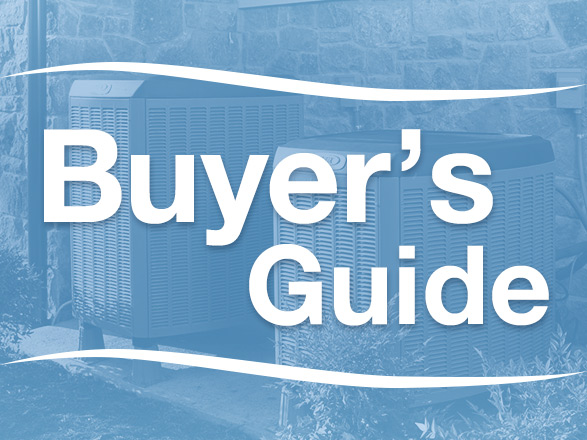How Much Does a Whole-House Air Purifier Cost in New Jersey?
November 11, 2024

First off, almost every New Jersey home could benefit from a whole-home air cleaner.
New Jersey consistently ranks as one of the most polluted areas in the U.S. That means, we’re at a higher risk of breathing in harmful particles—even in our own home. The good news is that a whole-home air cleaner can help improve your indoor air quality (and health).
So how much will an air purifier cost you? Well, the cost to install a whole-home air cleaner in New Jersey ranges from $600 to $1,200+.
Want a more accurate price than that? Well, it all depends on the kind of air purifier you buy. You see, more advanced air purifiers cost more but also require professional installation (which increases overall costs).
To better prepare you for your purchase, let’s look at the different types of whole-home air purifiers.
Types of whole-home air purifiers (and their prices)
The 3 most common types of whole-home air purifiers include:
- High-MERV filters
- UV air cleaners
- Electronic air cleaners
We’ll explain how each air purifier works, how much they cost and whether or not they need to be professionally installed.
High-MERV filters
Average cost: $50–$200 per filter
How they work:
High-MERV filters sit inside your HVAC system (they’re a much thicker version of the standard fiberglass HVAC filters). As air is pulled into the HVAC system via return vents in your home, it flows through the high-MERV filters. Air contaminants are then trapped in the filter’s many layers of synthetic media. The result is clean, conditioned air that gets pushed back into your home.
So what exactly is “MERV?” Well, MERV stands for Minimum Efficiency Reporting Value. Every filter gets a MERV rating (from 1 to 16), which determines how “well” it can clean the air in your home. The higher the MERV rating, the smaller the contaminants the filter can catch.
So what’s considered a “high” MERV? High-MERV filters range from MERV 7 to 16 and can capture small particles such as:
- Mold spores
- Lead dust
- Auto emissions
- Bacteria
- Tobacco smoke
Do they need to be professionally installed?
Usually a professional will need to install a high-MERV filter the first time around. That’s because thicker filters are more restrictive and can cause airflow issues inside the ductwork if they’re not installed properly.
For example, most filters over MERV 8 require a professional to cut in more return registers. This allows for additional airflow inside the ducts, which makes up for the more restrictive air filter.
UV air cleaners
Average cost: $450–$700+
How they work:
Lights that emit strong rays of ultraviolet light are installed inside your HVAC system. The UV light then penetrates and sterilizes DNA microbial contaminants in the air.
These systems prevent mold spores from producing in the HVAC system but they also get rid of odors, chemical vapors and toxins in the air.
Do they need to be professionally installed?
Professional installation isn’t required but it’s strongly suggested. Having your UV light professionally installed will raise the overall cost of your HVAC UV light installation by $100–$300.
But be warned: You risk losing a lot more money in the long term if you try a DIY UV light installation.
Why? Well, placement and sizing of a UV light in your HVAC system requires extensive knowledge of how UV-C light works and how the HVAC system works. If you don’t place or size the UV light properly, you could harm your HVAC system or or the light might not even work properly.
Electronic air cleaner
Average cost: $600–$1,200
How they work:
Electronic air cleaners use a thin layer of vented metal along with a physical filter (much like a high-MERV filter). As air passes through the metal layer, the contaminants in the air become positively charged. This positive charge forces particles in the air to cling to the physical filter material.
The extra ionization layer helps because it means that even very small particles that would otherwise slip past the filter instead grab on to the filter. Even second-hand smoke particles can be captured by an electronic air purifier.
Do they need to be professionally installed?
Usually, no—unless your HVAC system isn’t designed to incorporate the larger size of an electronic air cleaner, in which case a professional will need to adjust your system to accommodate the air cleaner.
The good news is, you can reuse an electronic air cleaner. You'll just need to take out the metal plates and rinse them off with water and soap every month or so.
